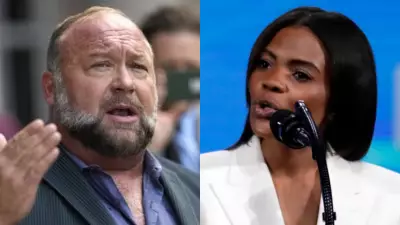
In a significant move that blended global politics with celebrity influence, renowned rapper Nicki Minaj addressed a United Nations panel, aligning herself with former US President Donald Trump's allegations concerning the persecution of Christians in Nigeria. The event, held at the US mission to the UN, highlighted the ongoing debate about religious violence in the West African nation.
Minaj's Powerful Stance at the UN
The Trinidadian-born artist, speaking on Tuesday, expressed her intention to spotlight what she described as a "deadly threat" to religious communities. She directly thanked Donald Trump for his leadership, acknowledging his call for urgent action "to defend Christians in Nigeria, to combat extremism and to bring a stop to violence." Her involvement stemmed from a reply to a social media post by Trump earlier in the month, where she had stated, "No group should ever be persecuted for practicing their religion."
US Ambassador Mike Waltz, who introduced Minaj, emphasized that she was appearing "not as a celebrity but as a witness" to bring attention to Nigeria's persecuted church for her millions of followers online. Despite admitting she was "very nervous", Minaj vowed to continue standing up "in the face of injustice" for anyone being persecuted for their beliefs anywhere in the world.
The Complex Reality of Nigeria's Violence
While the panel focused on the persecution of Christians, the situation on the ground is more nuanced. Trump has asserted that Christianity faces an "existential threat" in Nigeria and has even involved the Pentagon in preparing for potential military action. However, experts and local residents provide a broader perspective. They confirm that some attacks do indeed target Christians, but they stress a crucial point: in the widespread violence that has long plagued Nigeria, everyone is a potential victim, regardless of their background or belief.
This view finds support in global religious discourse. In a post on Sunday, Pope Leo XIV also pointed to Nigeria, alongside countries like Bangladesh, Mozambique, and Sudan, as places where Christians suffer from discrimination and persecution.
A Call for Unity, Not Division
During her remarks, Nicki Minaj was careful to clarify that her advocacy was not about taking sides. She insisted that protecting Christians in Nigeria "wasn't about taking sides or dividing people." Instead, she framed it as a unifying cause, stating, "It is about uniting people." She spoke positively of Nigeria, calling it "a beautiful nation with deep faith traditions" that she looks forward to visiting.
Drawing a parallel to her own profession, Minaj noted that music has allowed her to travel the world and witness how people universally connect with a song "that touches their soul." She powerfully concluded that "Religious freedom means we all sing our faith regardless of who we are, where we live and what we believe," encapsulating her message of universal rights and harmony.





